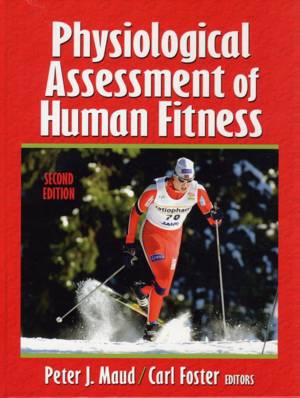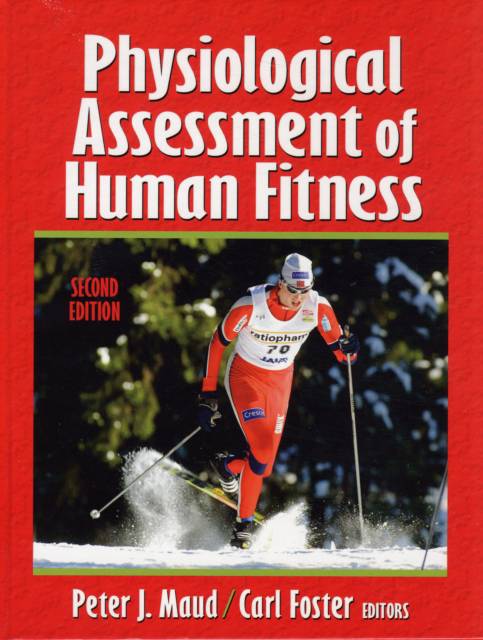
- Afhalen na 1 uur in een winkel met voorraad
- Gratis thuislevering in België vanaf € 30
- Ruim aanbod met 7 miljoen producten
- Afhalen na 1 uur in een winkel met voorraad
- Gratis thuislevering in België vanaf € 30
- Ruim aanbod met 7 miljoen producten
Physiological Assessment of Human Fitness - 2nd Edition
Peter J Maud, Carl FosterOmschrijving
Physiological Assessment of Human Fitness, Second Edition, contains detailed descriptions of a range of accepted fitness assessment methods. This resource focuses on the general population, not just elite athletes.
Following in the footsteps of the highly successful first edition, Physiological Assessment of Human Fitness, Second Edition, summarizes the current scientific methods for assessment in areas such as:
-aerobic and anaerobic power;
-capacity for sustained exercise using blood lactate, respiratory markers, and heart rate markers;
-pulmonary gas exchange;
-mechanical power and strength;
-body composition;
-joint range of motion; and
-field testing of athletes.
The authors, highly respected exercise physiologists, have made significant changes in each chapter to provide up-to-date coverage of the topics and to offer complete descriptions of the techniques, procedures, and norms for accurate and effective fitness testing. In addition, the authors have included new chapters on the use of near-infrared spectrophotometry and the potential for heart rate variability in assessment. As a result, readers learn how to measure and interpret physiological changes resulting from different types of training programs for sport and for health improvement.
Physiological Assessment of Human Fitness, Second Edition, provides practical, detailed descriptions of a range of accepted laboratory and field methods for assessing human fitness. It is an invaluable reference for professionals and students involved in human fitness assessment, including exercise physiology practitioners, graduate students in exercise physiology, exercise science researchers, sports medicine practitioners, and human fitness evaluators.
Specificaties
Betrokkenen
- Auteur(s):
- Uitgeverij:
Inhoud
- Aantal bladzijden:
- 320
- Taal:
- Engels
Eigenschappen
- Productcode (EAN):
- 9780736046336
- Verschijningsdatum:
- 22/11/2005
- Uitvoering:
- Hardcover
- Formaat:
- Genaaid
- Afmetingen:
- 219 mm x 283 mm
- Gewicht:
- 1124 g

Alleen bij Standaard Boekhandel
Beoordelingen
We publiceren alleen reviews die voldoen aan de voorwaarden voor reviews. Bekijk onze voorwaarden voor reviews.









